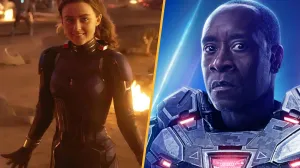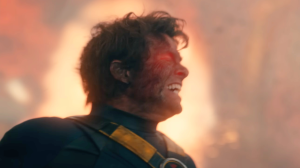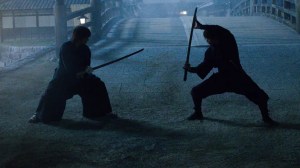Marvel’s Secret Invasion finale is now streaming on Disney+, and it isn’t exactly lighting up the Marvel Cinematic Universe fandom with hope and excitement. Secret Invasion Episode 6 ended things pretty much the same way most Marvel fans expected (and feared): a final showdown between Nick Fury (Samuel L. Jackson) and Super Skrull terrorist Gravik (Kingsley Ben-Adir), with little to no stakes for the larger MCU.
Videos by ComicBook.com
Even worse (MAJOR SPOILERS) what was supposed to be Secret Invasion’s biggest fakeout (Emilia Clarke’s G’iah impersonating Fury) only resulted in yet another standard MCU boss battle, with Super Skrull Gravik having to battle Super Skrull G’ah. While it was a cool little Super Skrull battle using a variety of Marvel superpowers, it was a spectacle that didn’t really feel like it moved the MCU forward in any way; the same goes for the larger storyline about how the events of Secret Invasion set Nick Fury and the Marvel Cosmic Universe up for The Marvels movie this fall.
Based on reactions to Secret Invasion, it seems that MCU fatigue is quickly manifesting into a very real problem for Disney/Marvel Studios and the franchise. As we break down on ComicBook Nation, the MCU is a massive boat that will likely take massive time and effort to turn back into promising waters – but it can be done.
The MCU Needs to Get Back to Connected Storytelling
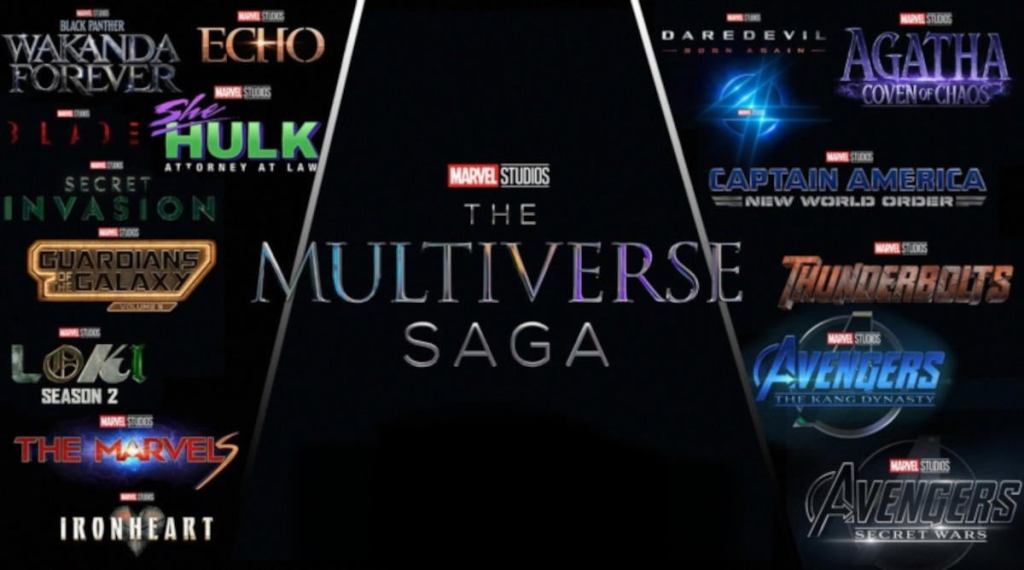
It’s normal for any TV and/or movie franchise that runs long to eventually lose sight of the fundamentals that made them appealing in the first place. Every genre has experienced it: comedy sitcoms get too repetitive, horror franchises get more outlandish to achieve scares, etc. Now the superhero genre and its biggest brand (Marvel) are going through it.
After Avengers: Endgame it’s been clear that Marvel Studios made a play for diversifying its content – both literally and figuratively. However, while (some) fans were happy about the idea of getting different genre/cultural influences on the Marvel formula, few imagined it would come at the cost of things feeling so disjointed. Disney/Marvel’s big experiment of adding a TV/streaming lane to the MCU has been the biggest, easiest, target of criticism, as it represented a deluge of content that clearly oversaturated the market.
However, the problem of disconnect runs deeper than that, and Secret Invasion is proof of that. Even when a Marvel Disney+ has broken through to the mainstream, and/or struck a major chord with the wider fandom (WandaVision, Loki), the events of those series have quickly been undone by movies (Doctor Strange 2, Spider-Man: NWH, Ant-Man 3) that not only don’t recognize but borderline disregard the deeper narrative and character developments offered by the longer form of a series.
With so much content, and so few connections, now feels more like a potluck franchise than a shared universe. What distinguished the MCU in the first place was being the one major blockbuster franchise with an interconnected story across films. If characters are now all playing in their own sandboxes, and major shared universe events (who owns Avengers Tower? What about that Celestial?) go unanswered for excessive lengths of years across multiple movie/TV properties, is this shared universe still even one?
Marvel Studios has also dug quite a hole for having this problem arise in its current “Multiverse Saga” overarching storyline. If keeping things tied together across six Infinity Stones was tough, it would stand to reason that the chess moves of a Multiverse Saga with alternate realities and time travel would have to be even more masterful. Nothing about the last two years of MCU storytelling has felt that way – and fans are growing impatient with it. The notion that Avengers: The Kang Dynasty and Avengers: Secret Wars will deliver a thrilling culmination seems more and more doubtful, given the scale of what those films are going to be doing.
How to Fix the MCU
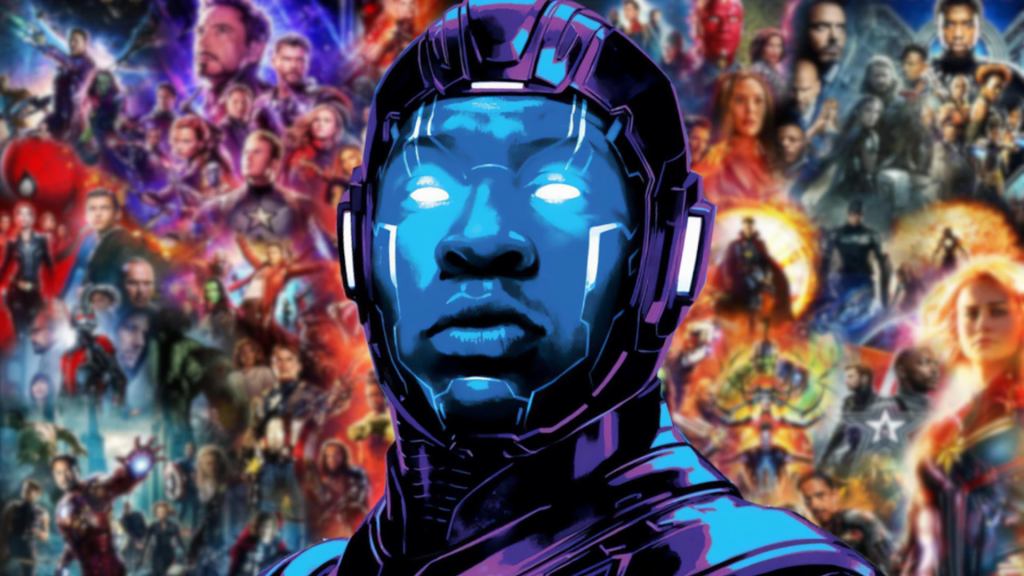
Luckily, Marvel Studios has all the goodwill in the world to spend with fans – even after some missteps. Phase I of the MCU was anything but a smooth experience, but The Avengers was still a beautiful culminating payoff event. And, while the MCU has not been a satisfying sum of its parts lately, each of the parts has some worth and significance that could be mined into a better, interconnected storyline, if done right.
When The Multiverse Saga began, a lot of Marvel fans thought the plan was to have clear distinct lanes of connected storylines: on Earth, in the cosmos, in the mystical/supernatural world, and the rise of a new generation of heroes (Young Avengers). Every one of those lanes was suspected to have its own individual connected storylines that would all culminate in the Avengers events films. With some slight tweaks, that’s still a very easy way to organize things; it gives fans of each genre type a lane to focus on (even if they don’t like the others) and still allows the variety of characters we’ve seen.
With the strike delays, changes in Disney leadership (Bob Chapek out, Iger back in), and distribution plans (less content every year), this is a perfect time for Marvel to regroup and redirect. Hopefully, that’s exactly what’s happening.
Last but not least: we need the re-introduction of some heavy-hitter franchises. Meeting the new kids has been fun enough, but clearly, Shang-Chi, Eternals, Ms. Marvel, or Moon Knight are not on the same level as mainstream superheroes like Daredevil, The Fantastic Four, or the X-Men franchise. Fans need those big names (done right) to get them back in, en masse.
The Marvel Cinematic Universe streams on Disney+.





